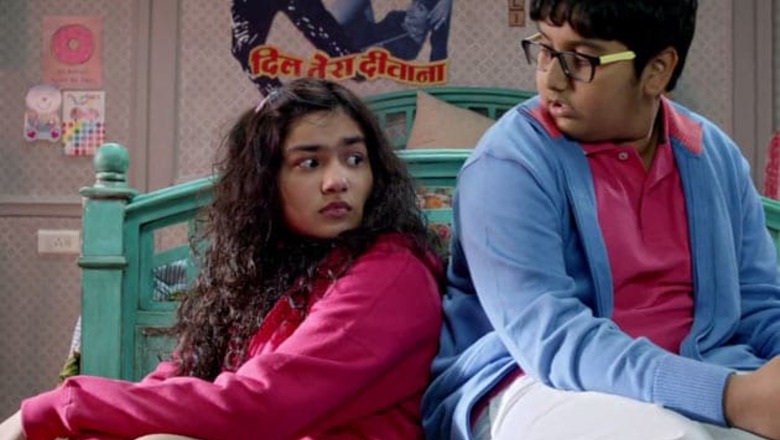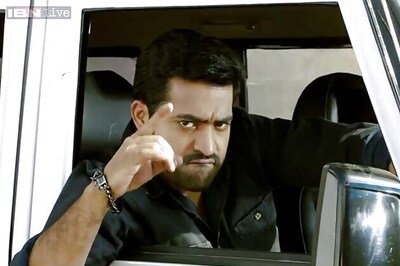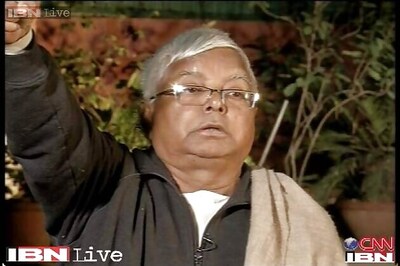
views
New Delhi: Sonam Nair's 'Gippi' is hitting the screens on Friday the 10th. On an outset, it seems to be dealing with the problems of adolescence, which would be a new thing in Bollywood if these issues are presented in a sensible way. It also marks the changing patterns of teen issues in the Hindi film industry.
One film that stands out in the list of teen films is Mansoor Khan's 'Jo Jeeta Wohi Sikandar' (1992). The film focussed on class divide through a dance competition and a cycle race. However, it is still among one of those rare film which dared to deviate from hardcore romance.
Hrishikesh Mukherjee's 'Guddi' (1971) was a saccharine sweet film which showed the difference between the real and reel world via Kusum (Jaya Bachchan). The teens in the film were as per the contemporary traditions and Guddi actually looked like a school girl in skirt. Time changed and so did the teens and their schools.
New kinds of sensibilities got associated with school kids. Filmmakers like Raj Kapoor had understood the changing pattern well in advance; otherwise he wouldn't have created Raju's character in 'Mera Naam Joker' (1970). The way he portrayed Raju's crush on Miss Mary was path-breaking in many senses. 'Bobby' (1973) was not a school film in that sense but it also tried to depict the innocence of adolescence, at the same time it was an indication of what to expect from future films.
Mani Ratnam's 'Anjali' (1990) was a new take on urban children and their coveted world of housing societies. Then the baton was passed to Nagesh Kukunoor who came up with absolutely nuanced 'Rockford' (1999). By now, schools had become the character building institution in Hindi films.
The Indian scenario was in complete contrast with Hollywood because we were not even thinking of showcasing even 10% of what they presented in 'American Pie' (1999). Satish Kaushik's 'Teree Sang', a kidult love story, came after a gap of good ten years in 2009. It dealt with teen age romance which leads to pregnancy.
'Taare Zameen Par' (2007), 'Paathshala' (2010) and 'Stanley Ka Dabba' (2011) are other films which have school going kids at the helm of affairs. These films are character centric and their protagonists deal with personal problems rather than problems which can be generalised.
Sonam Nair, the director of 'Gippi', talks about it, "Earlier it was one or two things, 'Gippi' is about a range of things, be it physical or emotional or familial, changes are happening everywhere. It's not plot driven but reality driven."
Nair further elaborates, "While writing 'Gippi' I didn't think it as a frivolous film. Just because it belongs to a certain age group and is fun filled, doesn't mean it lacks depth. Insecurity can happen at any age."
Insecurity among teens has indeed become a big issue and filmmakers have recognised it from time to time. 'Tunnu Ki Tina', 'Ishq Vishq', 'Main Hoon Na', 'Cycle Kick' and some other films have tackled the issues in their own ways. On analysing these films in entirety, it comes across that kids have not remained soft spoken and innocent. In fact, their insecurities are growing with each day but in a different manner. They seem more in favour of intra-personal communication than inter-personal. It makes us wonder whether they are becoming more bold or simply introverts.
In the era of nuclear families, schools have also become the channelized institutions of exerting peer pressure. Films such as 'Udaan' and 'Chillar Party' have different takes but overall the issue which is affecting the children the most is insecurity about looks and social prestige.
Now, when Dharma Productions' 'Gippi' is all set to show the phase of adolescence in a new light, we can expect some meaningful insights into the new age issues.
####




















Comments
0 comment